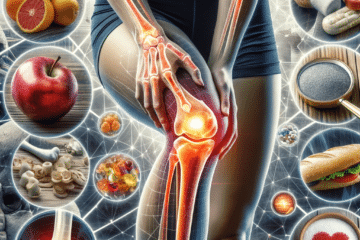
Nutrition is a complex, difficult to interpret topic in the world of athletic competition. For elites, proper nutrition is essential. For the rest of us, proper nutrition helps us complete and recover from our running or cycling endeavors.
I’m very happy to be able to publish a guest post by Dr. John La Puma. Dr. La Puma is one of the brightest minds in this space and will help us explore how to maintain a proper nutritional balance before and after we work out.
Only one thing clearly emerged from my review of papers and positions about what to eat before and after you work out. Most people do not need to eat anything to complete most workouts.
Weekend athletes, casual runners, sports players who are not elite or endurance athletes, or elderly and sarcopenic: make it easy on yourself. Drink 14-20 ounces of water before and every 45-60 minutes during your workout, and afterwards, and you are set.
In addition, if you are working out to keep the weight off, you are probably better off training with very little (50-75 calories, mostly carbs and a little protein, about 4:1) in your stomach, depleting your liver glycogen, and kicking over to burning fat. And not eating afterwards.
Working out, by the way, does not usually help you lose weight by itself, because most of us can out eat any amount of exercise, but it does make you feel better, add to self confidence, and redistribute weight.
However, if you are training for an event–a marathon, for example–or if you have an optimum performance goal in mind, and if you are an endurance or elite athlete, you should think about nutrition as essential equipment, without which you will underperform.
But what nutrition? Should everyone training for an event just have half a peanut butter and strawberry jam sandwich on whole grain toast an hour before and within an hour after their event, as a pre- and post-exercise appetizer?
Surprisingly, this isn’t bad advice, unless you’re on a ketogenic diet, or are against the grain, or allergic to peanuts (there is always tahini, or almond butter), or allergic to strawberries, in which case there is pomegranate molasses, which makes everything taste better. You have a small appetizer before the intense workout, and a small appetizer after. Not a fourth and fifth meal.
For the sake of discussion, endurance athletes are those who train and compete for 90 minutes or longer. There are so many different views of pre and post-event eating, both practice-based and science-based, that I will highlight the three categories and you can explore from there:
- Pre-race. Depletion-loading techniques mean draining all the glycogen from your liver and muscles by going ketotic for a few days before the race, and then carb loading like crazy. Dr. Bill Henderson describes it, and then gives the risks and benefits, and recommends against it. http://www.irunfar.com/2011/03/race-nutrition.html
- Eating while racing. Sounds impossible, but it is essential. Here, the American College of Sports Medicine suggests ingesting 1.5g of carbs/kilogram of body weight during the first 30 minutes, and every two hours thereafter. https://www.acsm.org/public-information/acsm-blog/sports-nutrition-un-plugged
- Recovery Nutrition The classic advice to eat protein containing foods after the race is all about improving muscle repair, and releasing more insulin, to store glycogen in the liver and the muscles. Your body makes muscle glycogen most actively in the first 15 minutes post-exercise. The best data shows that your protein need is about .4g per kg of body weight. http://www.todaysdietitian.com/newarchives/030810p36.shtml
Paradoxically, more insulin circulating is exactly what most of America does not want, as it is an indicator of insulin resistance in the presence of excessive visceral fat stores…which, it is safe to say if you are running marathons, you don’t have.
Not covered here is electrolyte replacement, which is its own conundrum of brightly colored drinks and trademark disputes; gender differences (there are probably differences in fatigue, for example); and whether runners should rely on artificial foods like “goo” or real food.
Also not covered is whether all carbs are the same (they’re not); the effect of the microbiome on performance; and the effect of stress on insulin and blood sugar levels. I hope to get to these one day.
Lastly, don’t do anything new the day of a race…you practiced, you’re fueled, you can refuel, now go!
I wish to thank Dr. John La Puma for this guest post. He’s one of the brightest clinical minds in the nutrition world and I appreciate that he took the time out to offer our readers his advice.













